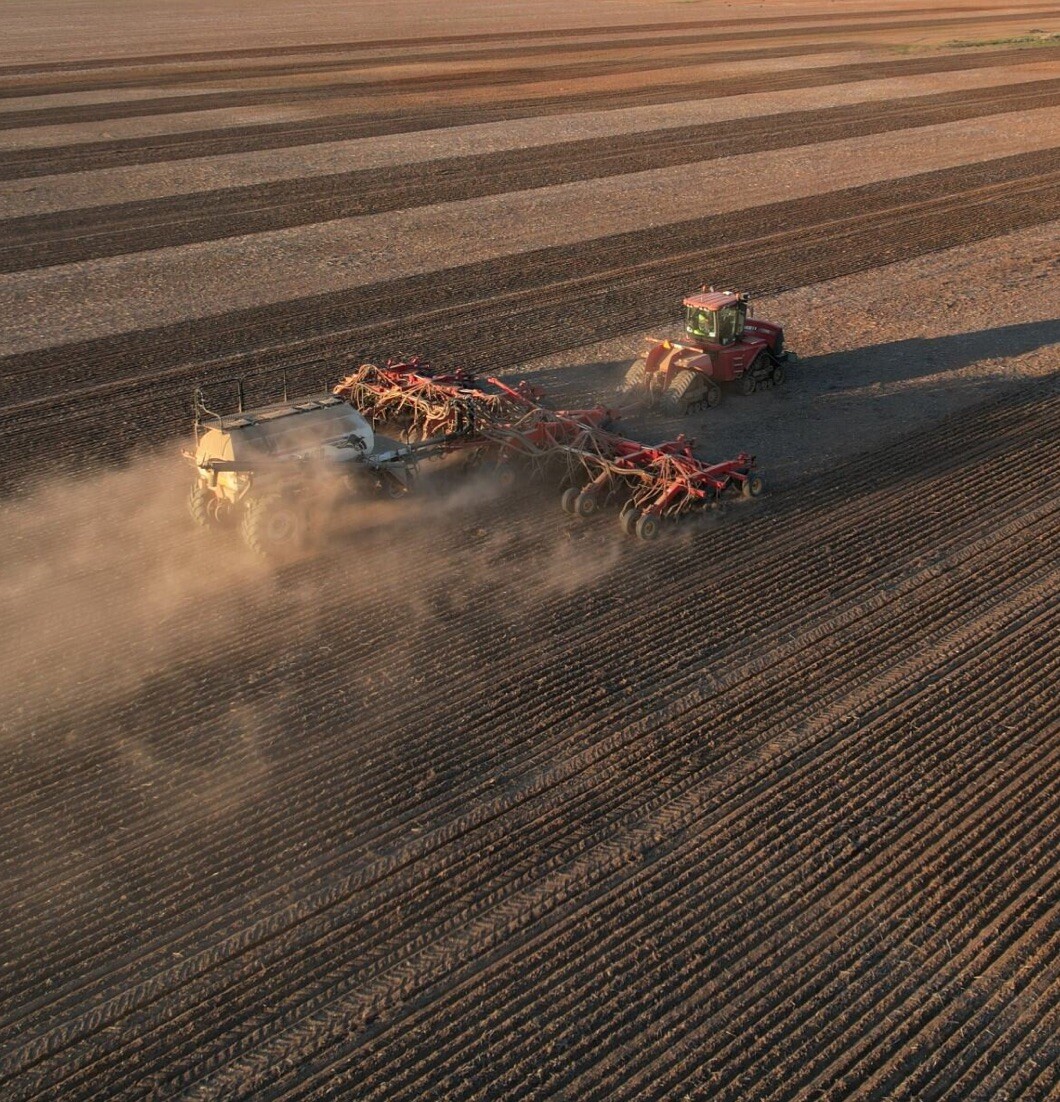GRAINS
Sophisticated world markets demand best practices in grain production from farmers in the Riverine Plains. Our goal is to help farmers maximise yields and grain quality so that they can be profitable and sustainable in the long term.
For more information contact
WHAT WE ARE DOING TO ADDRESS GRAIN PRODUCTION CHALLENGES in THE RIVERINE PLAINS
Riverine Plains research and extension projects cover all aspects of crop production.
This includes nutrition, stubble management, weed and disease control and pest management. We provide grain growers with access to valuable resources to optimise their grain production enterprises. Our goal is to help farmers maximise yields and grain quality so that they can be profitable and sustainable in the long term.
It's important that growers maximise their grain production given the world faces continuing challenges with food security. Scarcity of resources also means that local farmers need to do more with less to continue to supply the global population.
Climate variability also is posing challenges in local grain-producing systems and farmers are adopting new and innovative technologies to improve their efficiency of production. Increases in efficiency are also being driven by rising costs of production, volatile market conditions, lack of access to skilled labour and the potential requirement to measure and reduce greenhouse emissions in the future.
Riverine Plains aims to help our farmer members and the wider farming community plan, prepare for and mitigate against these challenges and risks. We’ll continue to support farmers to use best practice to maximise the production of high-quality grain for supply into global and domestic markets.
Research highlights
- Large-plot stubble management trials carried out as part of the Stubble project from 2013–17, showed there were no differences in yield due to stubble management techniques – including burnt, cultivated, no-till stubble retained, mulched, cut for straw and with or without additional nitrogen.
- Dry matter measurements from a 2023 irrigated faba bean crop monitored as part of an Irrigated Discussion Group trial, indicate that the nitrogen fixed could save up to $413/ha the following year in nitrogen costs (based on January 2023 pricing).
De-risking early sown crops
We are using localised demonstration trials to drive adoption of management practices that can improve the success of dry-sowing programs in the Riverine Plains.

OUR GRAIN PROJECTS
Our portfolio of grains-related projects help farmers address key production and profitability challenges in the Riverine Plains.
-
On-farm trials to prove the potential of microbial technology for better soils, better crops, and better returns.
-
This project is expanding data from a long-term cover and companion cropping trial at Burramine to test the impact of diverse species on soil health and stored soil water.
-
Supporting the development of standardised on-farm experimentation approaches in the Northern Region
Riverine Plains is working to develop and test standardised approaches for on-farm experimentation, improving data quality, confidence, and decision-making for farmers.
-
This project is extending results from a Soil CRC project, focussing on the benefits, challenges and economic realities of using cover and companion crops to boost soil health for drought resilience in the Riverine Plains.
-
This project explored a novel technology that may support successful canola establishment during challenging sowing conditions.
-
This project supports on-farm decision-making, with a focus on understanding key aspects and financial consequences (upside returns, downside risks) of various decisions within farming businesses.
-
Riverine Plains is supporting grain growers to enhance soil nitrogen by sowing companion legume crops, such as vetch, alongside non-leguminous grains to reduce the reliance on synthetic fertilisers.
-
Riverine Plains is demonstrating innovative cropping, grazing and mixed farming practices to support drought resilience and associated risk management in Victoria.
-
Riverine Plains is demonstrating innovative cropping, grazing and mixed farming practices in NSW to support drought resilience and associated risk management.
-
This project aims to investigate best practice to reduce slug damage in canola using chemical and non-chemical options.
WHAT’S ON
Discover past and upcoming events – from webinars and seminars to workshops and field days.
-
Thursday 15 May 2025
-
Tuesday 15 October 2024
-
Wednesday 10 April 2024
-
Wednesday 21 June 2023
-
Tuesday 13 June 2023
NEWS
Discover unique perspectives on agriculture from across the Riverine Plains.
-
Grains
-
Grains
-
Grains
